detail profile denise kerny
Peran Yang Di Mainkan Denise Kerny
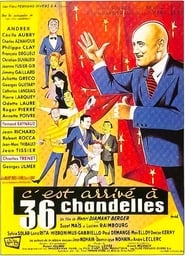 Rejecting the union of her daughter...
Rejecting the union of her daughter...It Happened on the 36 Candles 1957
Rejecting the union of her daughter Brigitte with a modest worker, Madame Magnin invents an adultery for the lover, then introduces Brigitte to a good-looking man working on the famous RTF entertainment show 36 Chandelles. The show ultimately seals the reunion of the two estranged young lovers. The story features a parade of music-hall stars from the era: Charles Trenet, Charles Aznavour, Georges Guétary, Juliette Gréco, Roger Pierre and Jean-Marc Thibault, Fernand Raynaud, Georges Ulmer and many more.
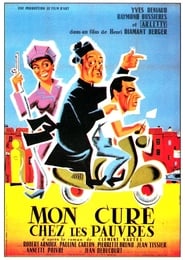 Abb Pellegrin parish priest of Sableuse...
Abb Pellegrin parish priest of Sableuse...My Priest Among the Poor 1956
Abbé Pellegrin, parish priest of Sableuse, sells an ancient Christ to an unknown man, M. de Saint Preux. Summoned to the bishop's palace, he learns that he has been the victim of a swindler. The Christ, exchanged for a "mouthful of bread", is a valuable antique. Not wanting to compromise his wartime comrade La Goupille, who had introduced him to Saint Preux, Pellegrin proposed to his bishop that he himself carry out the search for the Christ. For the occasion, he swapped his cassock for a "civilian" outfit and landed in Paris. He recovers the treasure in the midst of a series of adventures and misadventures involving Cousinet, the former squire of Sableuse. He takes in the tenants Cousinet has just evicted from his hotel.
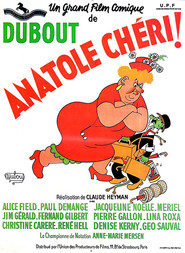 Anatole and his wife arrive in...
Anatole and his wife arrive in...Anatole chéri 1954
Anatole and his wife arrive in Deauville for the special care of their inherited aunt, Caroline. Caroline is also being courted by a doctor and the lifeguard Sparadrap. A young woman, Lolotte, recognizes in Sparadrap a former lover who has abandoned her and an escaped convict. She has him arrested along with Anatole, with whom she escapes. But Caroline, ruined by gambling, finds love and happiness.
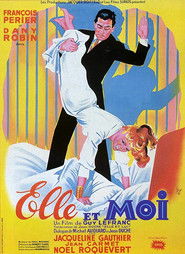 You never can tell Jean had...
You never can tell Jean had...She and Me 1952
You never can tell. Jean had always been one of the most confirmed bachelors that kept swearing to anyone that would listen he would never put a ring on a female finger. But that was before he met Juliette, a capricious but irresistibly lovely young woman. Well, what else can you do when you fall dead in love with a creature of the kind? And too bad if their honeymoon proved catastrophic. To say nothing of their housing problems : what to do when neither husband nor wife has any money? How to build one's love nest when the housing crisis rages? How to get by when your wife has luxury tastes?
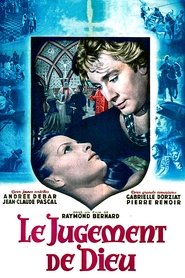 Bavaria 1433 Reason of state rules that...
Bavaria 1433 Reason of state rules that...Judgement of God 1952
Bavaria, 1433. Reason of state rules that Prince Albert is to marry Princess Bertha of Wurtemberg. But the fine-looking young man is loath to become the husband of a woman with pimples,flat feet and no breast. Nevertheless, he has to obey his authoritarian father, Duke Ernest, and accompanied by faithful Count Törring, he mounts his steed and sets out for Würtemberg. Stopping in Augsburg, he falls in love with the daughter of a local barber-surgeon, pure and beautiful Agnès Bernauer. The couple is soon secretly married and both take refuge at the castle of Margravine Josepha, Albert's aunt, waiting for Ernest's consent. Unluckily Albert's father will not accept his son's union with a commoner and Albert, supported by Josepha and an army of common people, declares war on the Duke. They seem about to be victorious when Brother Enrique, a monk formerly in the Holy Inquisition, finds a way to reverse the situation: accusing Agnès of witchcraft...
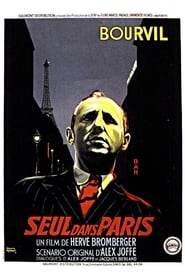 Henri and Jeannette Milliard a newly...
Henri and Jeannette Milliard a newly...Alone in Paris 1951
Henri and Jeannette Milliard, a newly married couple from Normandy arrive in Paris where they intend to spend their honeymoon. Unforfunately a wicket gate in the metro separates the couple. In panic, Henri looks for his wife across the capital. He ends up finding her at the hotel they were to put up. But it looks as if Jeannette has gone through some distressing adventure.
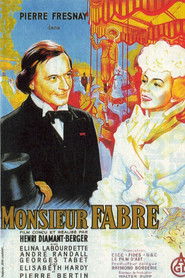 It centres on the life of...
It centres on the life of...Amazing Monsieur Fabre 1951
It centres on the life of the entomologist Jean-Henri Fabre and his total devotion to studying insect behavior, travelling from Avignon to Paris, from Paris to his death in Sérignan. He is honoured by the French president Raymond Poincaré and his patience, obstinacy and knowledge are also recognised by Napoleon III, the publisher Charles Delagrave and the philosopher John Stuart Mill. They reach their climax in his book, Souvenirs entomologiques.
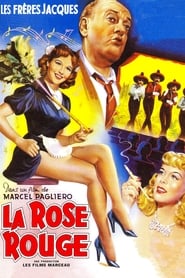 The Jacques Brothers their temporary replacements...
The Jacques Brothers their temporary replacements...The Red Rose 1951
The Jacques Brothers, their temporary replacements, Yves Gérard and his troupe, as well as a famous movie star looking for a new partner, Evelyne Dorsey, are causing disruption at the "La Rose rouge" cabaret, the most famous cellar in Saint-Germain-des-Prés, to the delight of regulars.
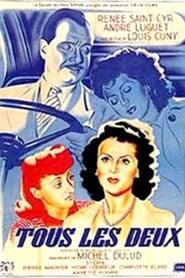 Jean and Claude he a car...
Jean and Claude he a car...Tous les deux 1949
Jean and Claude - he a car builder, she a model - loved each other, then separated because of Jean's despotic affections. Claude has retired with her child and a friend to a farm she can't manage. Wearily, the friend alerts Jean who, in the twinkling of an eye, erases the difficulties. Claude also learns that the child has been recognized and that his father has always looked after him. The two reconcile and embark on a journey for better or for worse.
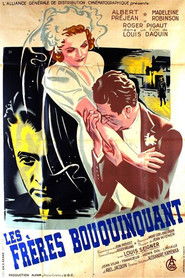 A provincial Julie Moret is hired...
A provincial Julie Moret is hired...The Bouquinquant Brothers 1948
A provincial, Julie Moret, is hired as a servant in a Parisian bourgeois residence. She is courted by one of the Bouquinquant brothers, Léon, who does not take long to ask her to marry him. Alas, Léon turns out to be violent, alcoholic and lazy. Faced with her misfortune, Julie gets closer to her brother-in-law Pierre, the opposite of Léon, serious and hardworking, and they become lovers. The drama will rush when Julie becomes pregnant with Pierre.
 During WW1 a train is stopped...
During WW1 a train is stopped...The Deserter 1939
During WW1, a train is stopped by a bombing, a young soldier takes advantage of the opportunity to go to his native village to connect with his love and his family. As WW2 began in the real world, this film was rereleased later in ‘39 under the revised title Je t'attendrai (I Will Wait for You).
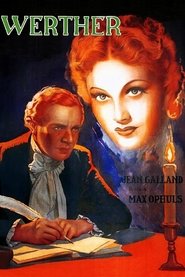 Herr Werther a new magistrate to...
Herr Werther a new magistrate to...The Novel of Werther 1938
Herr Werther, a new magistrate to the Grand Duchy of Walheim who is a violinist and poet, seems to have fate on his side as he meets and pursues a beautiful local woman, Charlotte. But as Werther sets to propose marriage, Charlotte reluctantly tells him she has been promised to another, Werther's superior, Judge Hochstätten. Werther and Charlotte decide to keep their romance from the judge and each descends into depression. Will they be able to keep their feelings a secret?
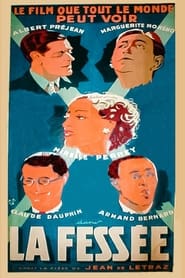 A husband exasperated by his wife...
A husband exasperated by his wife...The Spanking 1937
A husband, exasperated by his wife, spanks her without paying attention to the open window in front of which he is. He is annoyingly surprised to discover the next day that the scene has been photographed by a neighbor, and that the image is circulating in Paris. A debate then ensues: is this an opportunity to call for revolt or a welcome manifestation of marital authority?
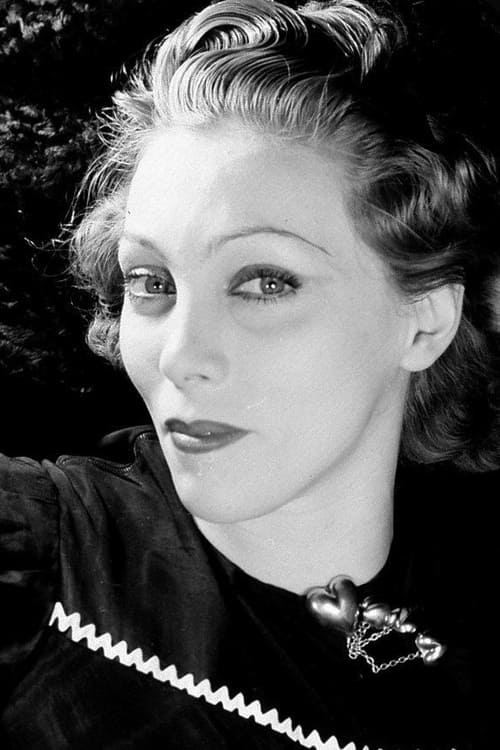
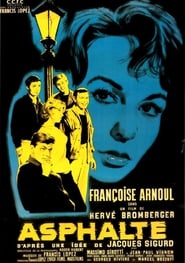 Franoise Arnould plays here a married...
Franoise Arnould plays here a married...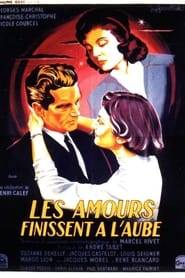 Didiers wife is ill and he...
Didiers wife is ill and he...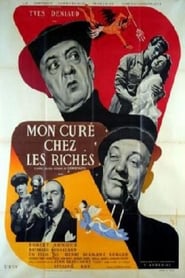 Discharged catholic priest Pellegrin is back...
Discharged catholic priest Pellegrin is back...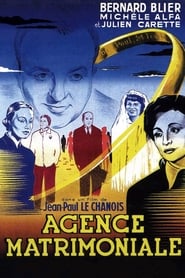 Nol is a bachelor who inherits...
Nol is a bachelor who inherits...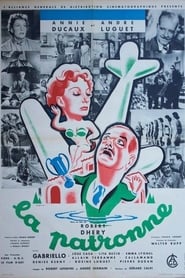 Agns de Louvigny aviator crashes with...
Agns de Louvigny aviator crashes with...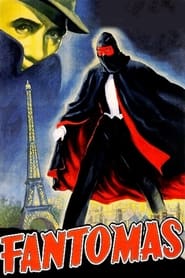 The invincible bandit faces his daughter...
The invincible bandit faces his daughter...